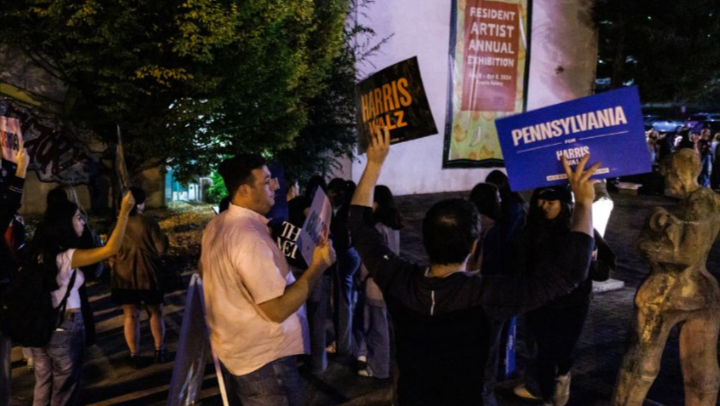Democratic Voters Show Who They Want to Run in 2028: Republicans Should Be Thrilled

To adapt an old saying: never interfere with your opponents when they seem determined to make a mistake.
That doesn’t mean we shouldn’t attempt to understand the baffling tendencies of our political rivals, particularly when it comes to their inclination toward self-destruction.
Recent polling sheds some light on this phenomenon. Two separate surveys conducted in the past week show that Democratic voters overwhelmingly favor Vice President Kamala Harris as their top choice for the 2028 presidential nomination.
For example, an Echelon Insights poll of 1,010 likely voters revealed that 41 percent of Democrats back Harris, as reported by Newsweek.
Trailing far behind was California Governor Gavin Newsom, who garnered just eight percent support.
📊 2028 National Democratic Primary
— InteractivePolls (@IAPolls2022) November 20, 2024
• Kamala Harris — 43%
• Pete Buttigieg — 9%
• Gavin Newsom — 8%
• Tim Walz — 7%
• Josh Shapiro — 5%
• A. Ocasio-Cortez — 4%
• Gretchen Whitmer — 3%
• Cory Booker — 2%
• Amy Klobuchar — 2%
• Elizabeth Warren — 2%
• Andy Beshear — 2%… pic.twitter.com/k8ygxaszMI
Similarly, a Morning Consult poll surveying 1,012 Democrats and Democrat-leaning independents found Harris with 43 percent support, leaving Transportation Secretary Pete Buttigieg in a distant second place at nine percent.
Of course, we should take any poll attempting to predict preferences for 2028 with a grain of salt — a lot can and will change before then.
Still, the fact that over two-fifths of Democrats seem ready to support Harris again raises questions.
These results may primarily reflect name recognition. After all, during the 2024 campaign, Harris received significant backing from the political establishment and its media allies. Low-information Democratic voters — often the majority — might simply default to the most familiar name.
Additionally, Harris’s decisive defeat to President-elect Donald Trump left many Democratic voters feeling bitter. Supporting her again — or at least claiming they would — might resonate emotionally with the party’s more fervent base.
However, Democrats’ apparent willingness to rally around Harris suggests they’ve learned little from past failures.
Throughout her tenure as vice president and her extended time on the campaign trail, Harris repeatedly showcased her inadequacies as a public figure. Her inability to articulate substantive points and her habit of delivering nonsensical “word salads” have cemented her reputation as one of the least effective officials in recent memory.
This presents a significant challenge for Democrats heading into 2028. Imagine, for instance, a debate between Harris and Vice President-elect J.D. Vance. Following Vance’s commanding performance against Democratic vice-presidential nominee Tim Walz last month, one can hardly imagine a greater mismatch than a Vance vs. Harris face-off.
Furthermore, if Republicans nominate a fresh, dynamic figure such as Vance, Vivek Ramaswamy, Tulsi Gabbard, or another capable Trump ally, the contrast between Harris and any of these candidates in debates and on the campaign trail would highlight her glaring shortcomings.
It’s likely that Democratic elites are well aware of Harris’s weaknesses, which is why they won’t allow her to secure the 2028 nomination.
Take, for example, their bold move to push President Joe Biden out of the 2024 race. By orchestrating Biden’s withdrawal, Democratic leaders once again proved that they — not the voters — control the party’s decision-making.
And this is where the irony of these polls comes into play. When it comes to choosing candidates, the preferences of Democratic voters have little influence over the party’s ultimate decisions.